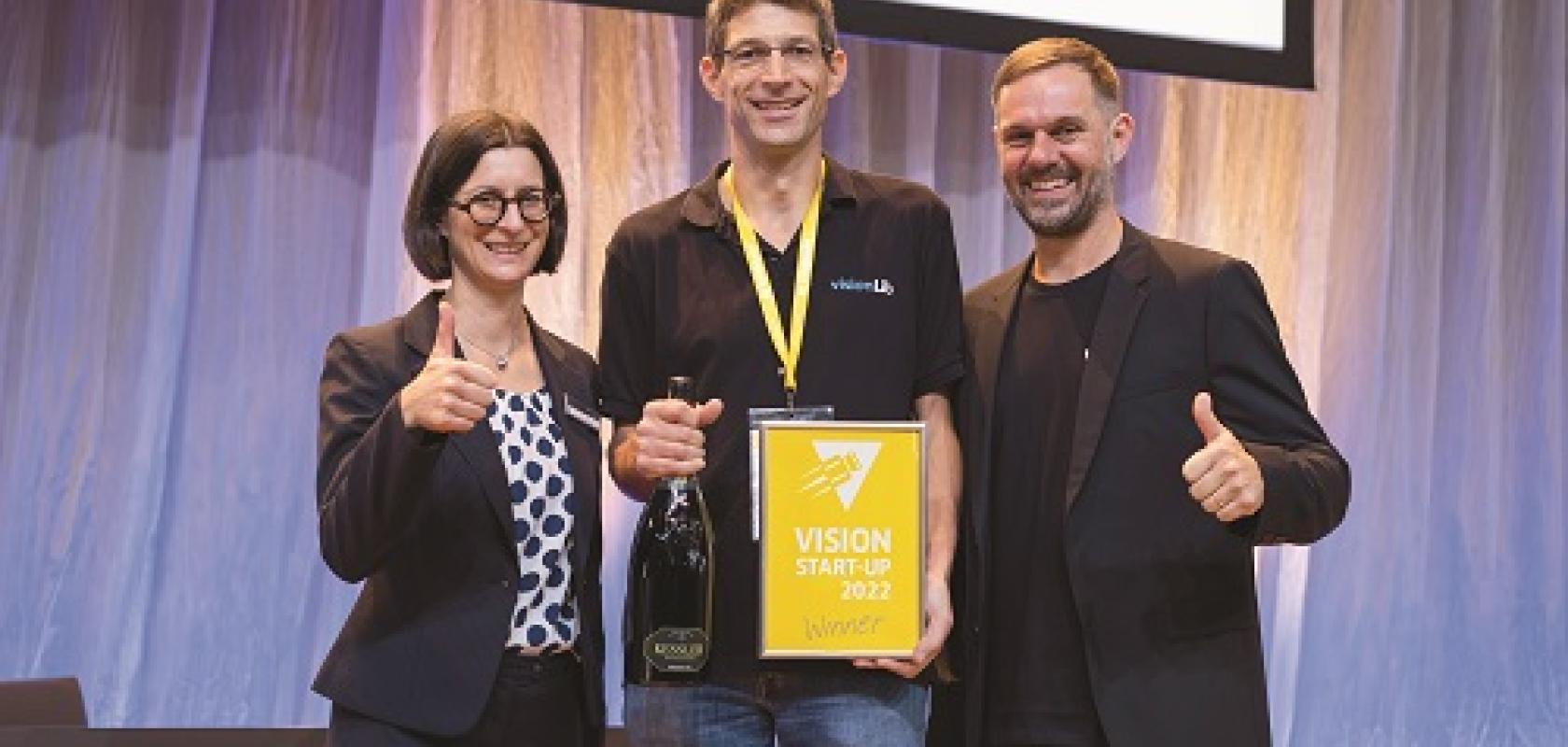Visometry has won this year’s start-up award at the Vision trade fair in Stuttgart for its industrial augmented reality solutions.
Harald Wuest, co-founder and CEO of Visometry, convinced the jury with his presentation about tracking manufactured items using CAD models.
Visometry’s Twyn software is an AR platform for quality inspection. Users can annotate a CAD model against which the real part is compared. The annotations can be spatially located in AR at the exact position on the real component, and also combined with metadata such as the torque of a screw, production notes or the material properties of an object.
The award recognises the importance of digitisation in manufacturing, with production plants now using digital twins to help assemble parts. Along similar lines, the Vision Award, the prize for machine vision also presented at the trade fair, went to Kitov.ai for its CAD-based planning software for robot inspection tasks.
The Start-Up World section at Vision Stuttgart hosted 20 young companies, with a number pitching their technology to the award jury on each of the three days of the show. Along with Visometry, the jury also recognised Saccade Vision for its MEMS-based 3D camera, which it launched at Automatica earlier in the year; Covision Quality, a spin-off of the computer vision and machine learning application centre Covision Lab, which licences its inspection software to manufacturing companies; the Japanese AI firm Hacarus; and Oculi for its take on an event-based vision sensor.
In an article for Imaging and Machine Vision Europe earlier in the year, Franz Tschimben, Covision Lab’s CEO, said the goal is to become the leading computer vision machine learning hub in Europe for industry.
Oculi’s sensing and processing unit (SPU) combines sensing and pre-processing in the pixel. The sensor offers microsecond latency, reduced bandwidth because only the relevant information is processed, 140dB of dynamic range, and milliwatt power consumption.
The sensor can switch from motion sensing to colour sensing so that even when there is no movement in the scene the sensor can record data.
Oculi’s founder, Charbel Rizk, said he was interested in finding a partner at Vision Stuttgart for using the sensor in an industrial environment. The firm already has traction in the ITS and IoT markets.


